AGORA 4th Athens Biennale
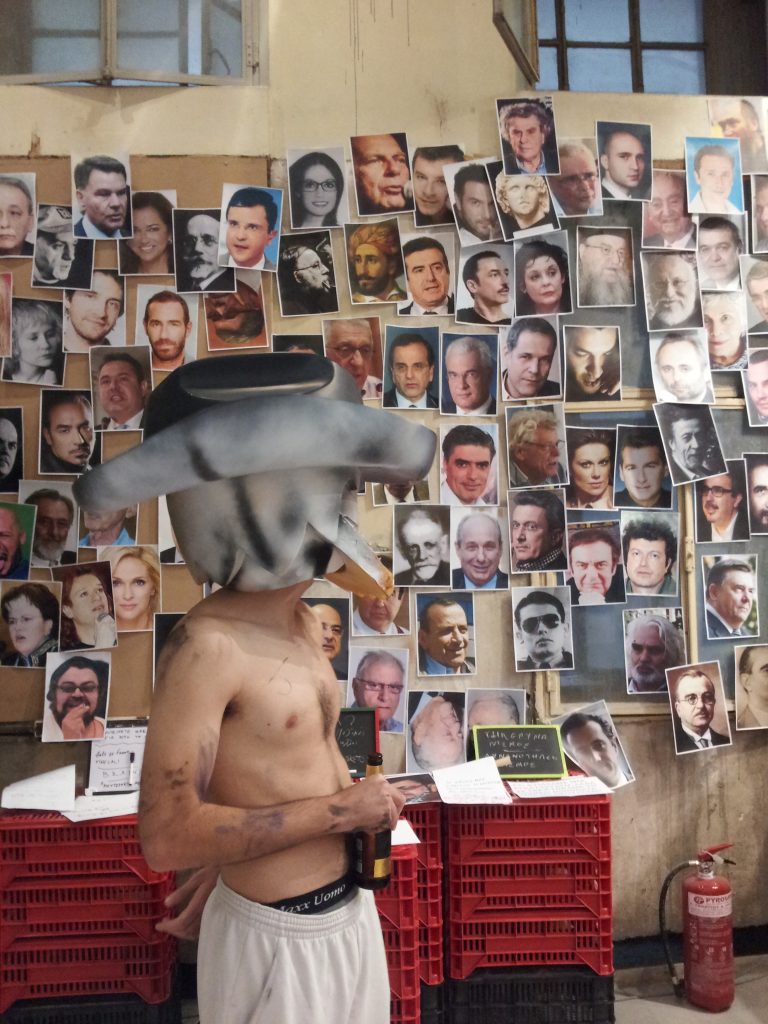
The 4th Athens Biennale (AB4) AGORA was curated, produced and realized by the following diverse group of artists, curators, theorists and practitioners in the creative industries: David Adler, Polina Agapaki, Madeleine Amsler, Annita Apostolaki, Marilena Batali, Viviana Checchia, Kostas Christopoulos, Christos Dimolikas, Thanos Eleftherakos, Alkisti Efthimiou, Charles Esche, Thalia Geladaki, Zoë Gray, Brian Holmes, Dossy Iordanidou, Ilektra Kalaitzaki, Xenia Kalpaktsoglou, Elpida Karaba, Zafeiris Karampasis, Myrto Katsimicha, Fey Koutzoukou, Melina Legaki, Antonis Lyras, Christopher Marinos, Sheila Mathioudaki, Katerina Nikou, Galini Notti, Alexandros Nousias, Christian Oxenius, Mary Palmoutsou, Themis Papadimopoulos, George Papanagiotou, Panos Papanagiotou, Ilias Paraskevopoulos, Eleanna Pontikaki, Stephanie Smith, Nicky Sotiropoulou, Kostis Stafylakis, Glykeria Stathopoulou, Katerina Stavroula, Katerina Tselou, Nicky Tsianti, Evita Tsokanta, Poka-Yio, Despina Zefkili
DATES September 29 – December 1, 2013 VENUES National Bank of Greece Building, 10 Sophocleous str. CAMP Contemporary Art Meeting Point, 2 Evpolidos & Apellou str. ARTISTS A Whale’s Architects, ABROAD, Activist group of the Theatre of the Oppressed, David Adler, AGORA Kyklos, Ianna Andreadis, Abbas Akhavan, Dimitris Antoniou, Arbit City Group*, Art & Economics Group (Tanja Ostojic, Dimitri Kleiner, David Rych), Art as a Change Maker, Artbank, Anestis Azas, Manolis Baboussis, Bertille Bak, Erica Baum, The Beggars’ Operas, Bernd & Hilla Becher, Dave Beech, Matei Bejenaru*, Blitz, Iain Boal, Irina Botea, Tania Bruguera, Campus Novel, Charley Case, Center for Research and Dissemination of Music Scheming, Giuseppe Chico & Barbara Matijević, Katerina Christidi*, Creative alternatives to the state of bankruptcy, Neil Cummings, Dashndem, Anthony Davies, Design 99*, Dimitris Dokatzis, Sam Durant, Economic Forum, Erect like a Country, Charles Esche, Event as Process, Fallen Fruit*, Heiner Flessbeck, FYTA*, Rainer Ganahl*, Nikolaus Gansterer & Emma Cocker, Fernando Garcia-Dory, Fotini Gouseti & Taxideftes Politismou, Grupo Etcetera, Nuria Güell, Severin Guelpa, Jan Peter Hammer, Paul Handley, George Harvalias, David Harvey, Constantinos Hadzinikolaou, Yota Ioannidou*, It Takes Two to Tango, Nazima Kadir, Yannis Kalaitzis, Valentina Karga & Pieterjan Grandry, Gareth Kennedy & Sarah Browne, Soo-Young Kim, Anja Kirschner & David Panos, Anna Kleberg, Ika Knezevic*, Maria Konti, Zissis Kotionis*, Chrysanthi Koumianaki*, Gabriel Kuri, Kyklos Ensemble, Mara Maglione, Paolo Manasse, Jenny Marketou, Gabriel Mascaro, Konstantinos Mihos, Never the Same, The New Parthenon, Vladimir Nikolic, Nomadic Kitchen / Shedia, The Non-Serious Lectures, Navid Nuur, OKK Actiongroup, Boris Ondreicka, Geof Oppenheimer, Georgia Paizi, Leda Papaconstantinou, Yorgos Papadakis, Panos Papadopoulos*, Elias Papaioannou, Ester Partegàs, The ‘peculiarity’ of the Greek case vis-a-vis European ‘normality’, Pil & Galia Kollectiv, Adrian Piper, Antonis Pittas, Vito Polito, Sally Potter, Thomas Poulsen/FOS, Pre-Institutional Critique Workshop, Theo Prodromidis*, Anja Puntari, Qualia, Radio Materiality, Gene Ray, Raymondos, Lucrezia Reichlin, Steve Reinke, Oliver Ressler, Juan Carlos Romero, Romvos, Frances Ruane, Salinas / Bergman, Salon de Vortex, Marinella Senatore, Roman Signer, Laurie Simmons, Deb Sokolow, Aspa Stassinopoulou, Yannis Stavrakakis, Hito Steyerl, Subversive affirmation and overidentification, Superstudio, Suvi Nurmi, Amund Sjølie Sveen, Petros Touloudis*, Nikos Tranos, Kostas Tsolis, Loukas Tsoukalis, Value, Vital Space, Vassilis Vlastaras, Wooloo, Zafos Xagoraris*, Mi You & Lisa Bensel *15 premieres / new productions
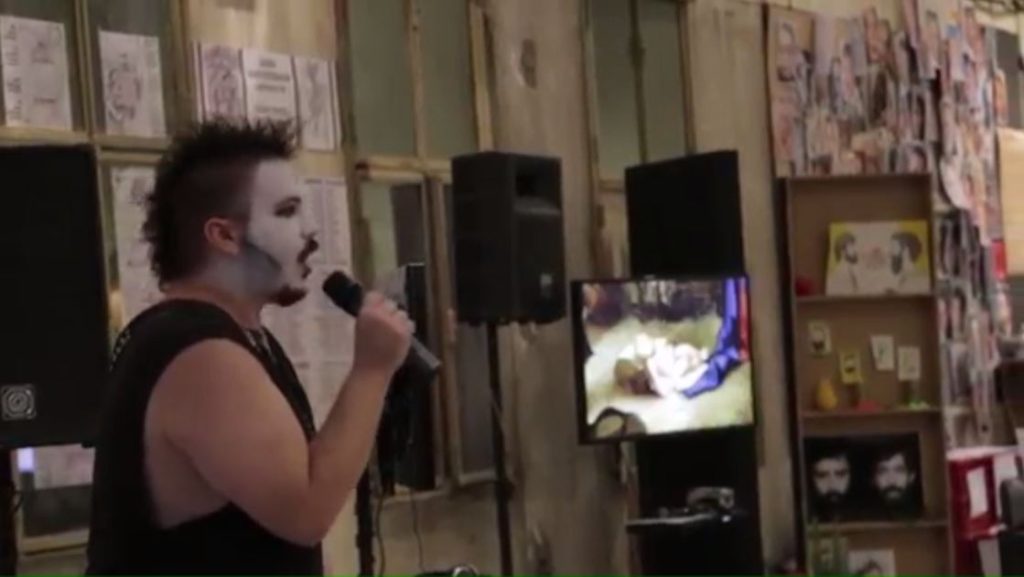
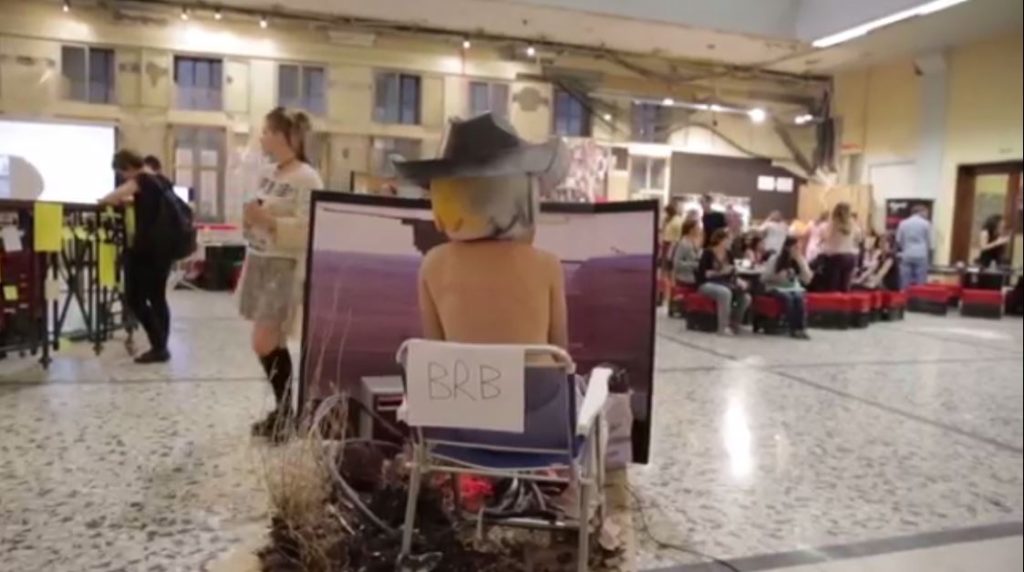
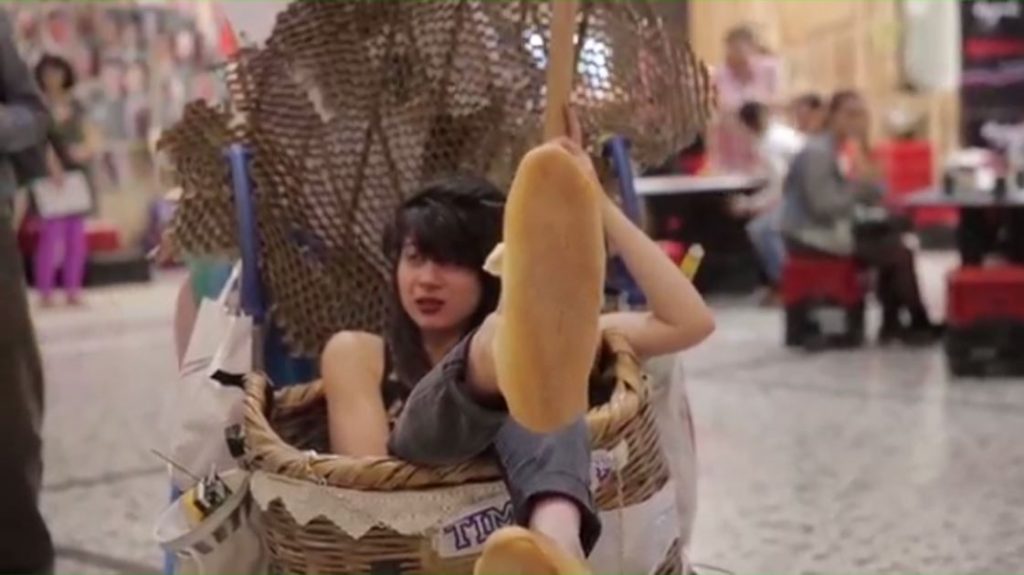
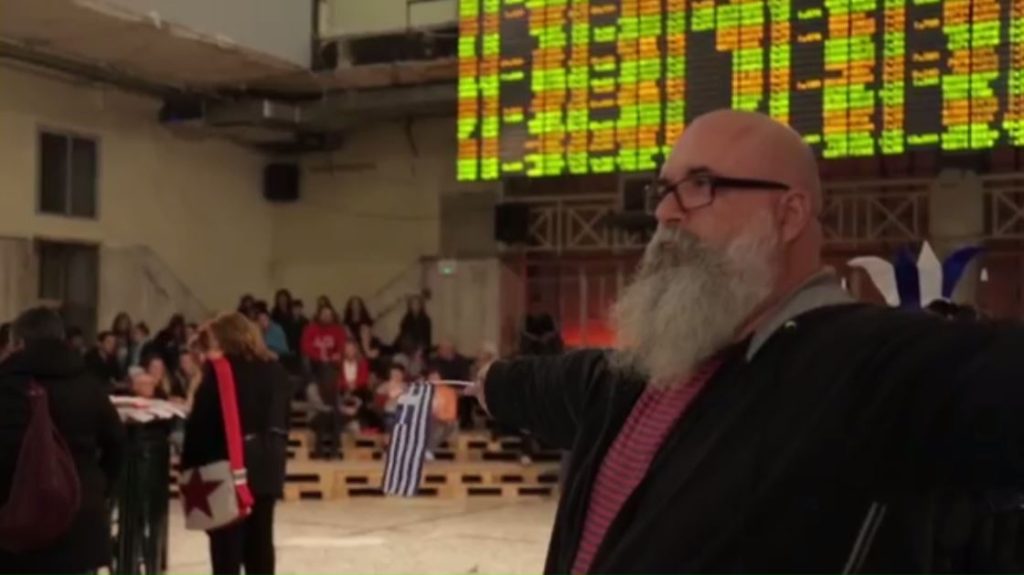
Given that 2011 was the year of protesting and dreaming dangerously, 2013 prompts us to think responsively and come up with useful ideas and suggestions. At a time when the financial crisis in Greece and elsewhere is reaching a highpoint, the 4th Athens Biennale (AB4) cannot but respond to this bleak situation through a pertinent question: Now what?
While Monodrome (AB3) attempted to reflect upon Modern Greek history and the origins of the crisis, this year the Biennale will set out to explore creative alternatives to a state of bankruptcy.
Pondering this turning point, AB4 puts into play the collaborative process in producing an exhibition. Titled AGORA, it reflects on the way a biennale has to operate under the current socio-economic circumstances. Using the empty building of the former Athens Stock Exchange as its main venue, AB4 proposes AGORA not only as a place of exchange and interaction, but also as an ideal setting for critique. Contrary to an idealized image of the ancient agora, this new AGORA points to a radical re-orientation in thinking – one that entails judgment, ruptures and conflict. As a contested space where multiple theses and doctrines emerge, this AGORA cannot be taken for granted: it aims for pleasure and purpose; it opts for the carnivalesque and the ambiguous, for the significant as much as the insignificant.
AGORA draws on the notions of the assembly and the assemblage. Conceived both as a living organism and an exquisite corpse, it is formulated through a succession of objects, collaborative events, performances, roundtable discussions, film screenings, workshops and educational programs. In AGORA works and theses evoke that which is urgently needed at this particular moment: an engaged subjectivity, an unearthing of timely attitudes, a reevaluation of artistic strategies, a deconstruction of mystifying narratives.
AB4 will be realized by a nameless and ephemeral group of artists, curators, theorists and practitioners in the creative industries. AGORA is thus a collective experiment, the result of a process of fermentation between professionals from different backgrounds. What matters most to those who participate in such an experiment is a shared sense of responsibility and an urge to co-produce meaning.
What is AGORA?
Agora is not just an art exhibition. Nor is it an attempt to construct a predefined and rigidly designed event. AB4 is an effort to demonstrate the procedure that compounds and produces an art exhibition, at the same time the Threshold of that procedure and the Beginning of its openness to unconventional approaches towards the traditional practices of supervision. AB4 is the place and time, the Event of meeting, coexisting and rethinking of the pluralism and contradictions of society as well as the meaning of collectiveness, a tool to deal with the critical question of our time: “And now what?”. AGORA is a Machine that produces reflections, functions with ideas and opinions as fuel, that does not forordain the result but highlights the mechanisms and manifestations of its collective use. AGORA is the Question without the answers, the Failure and Triumph of our joint experiment.
Through a participatory and collective attempt to oversee the works of art, the simultaneous events as well as the procedures, open to public intervention, for developing meaning and substance, the team of the 4th Athens Biennale aspires to offer the exhibition as a spotlight for expression and reflection on reality as experienced by the public, rather than the organizers and artists exclusively, and to see art confront its natural boundary which is no less than the society which engulfs it and constitutes the conditions for its existence. Here, participation is equally important to everything which are already designed, are being designed and are presented. AGORA is you and us, our common ground. Don’t visit it, experience it.
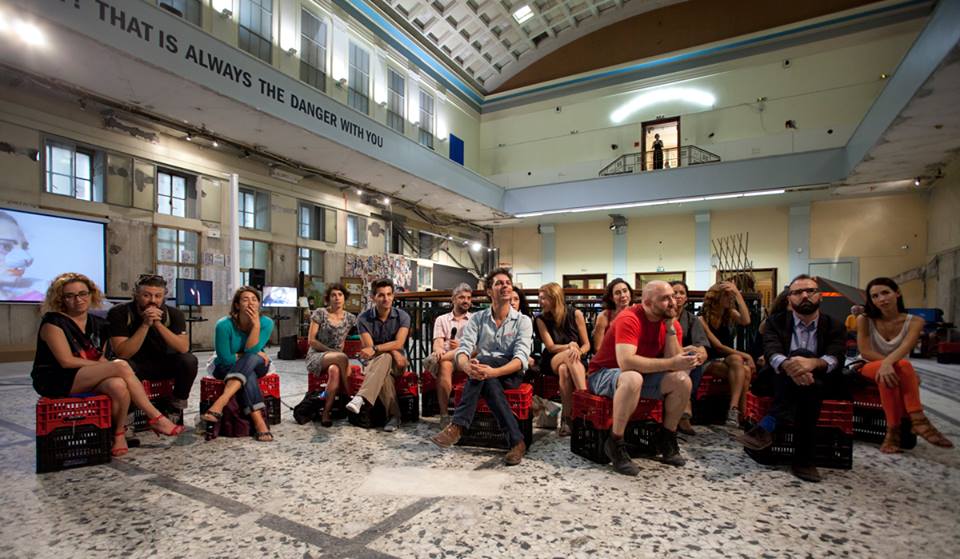
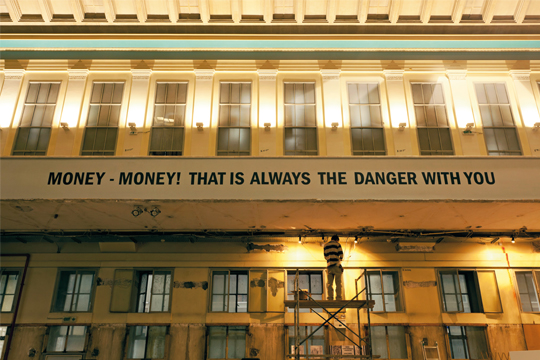
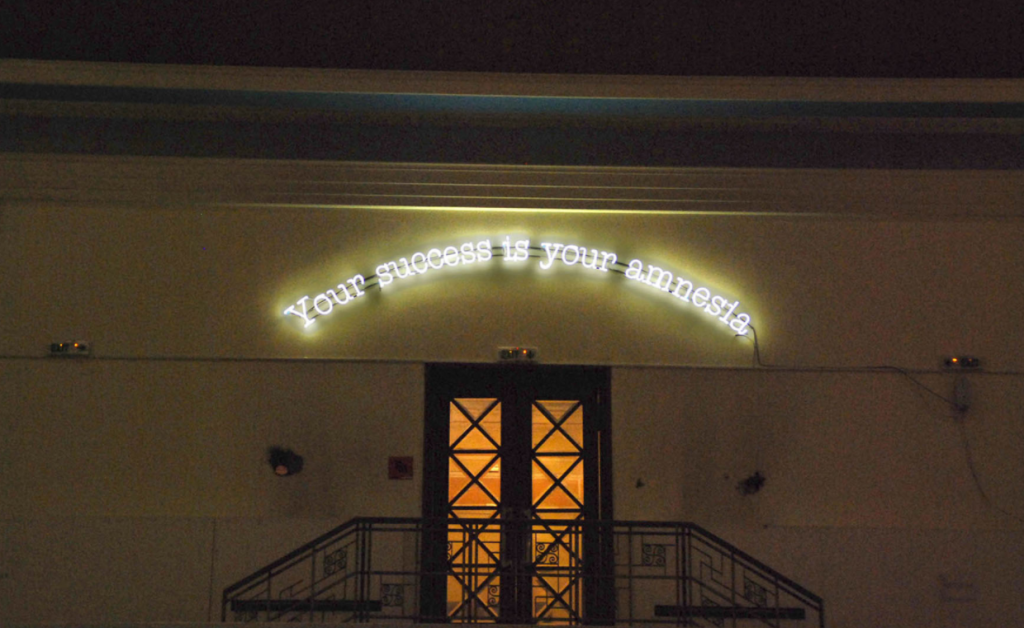
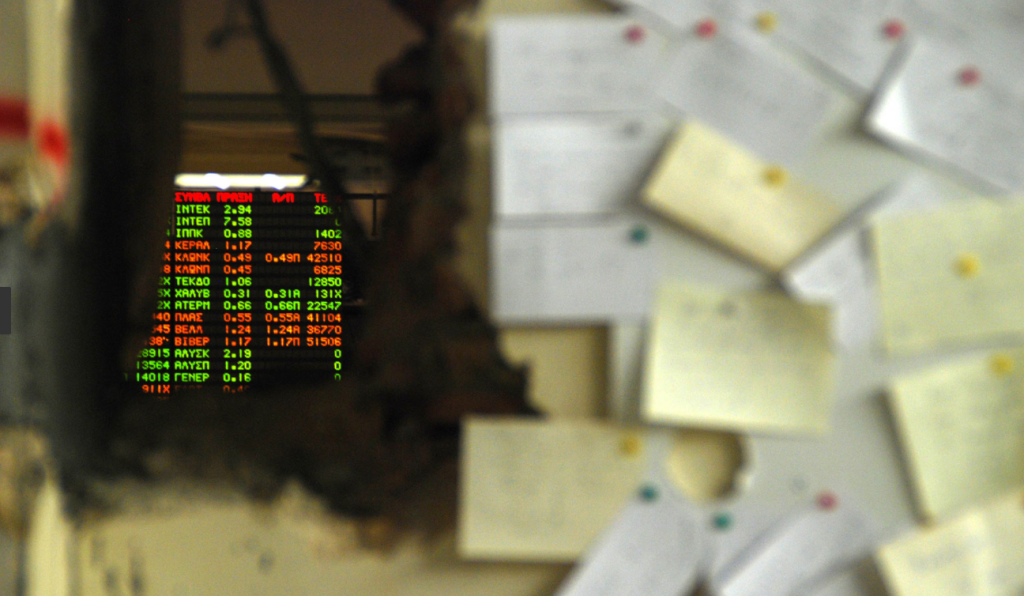
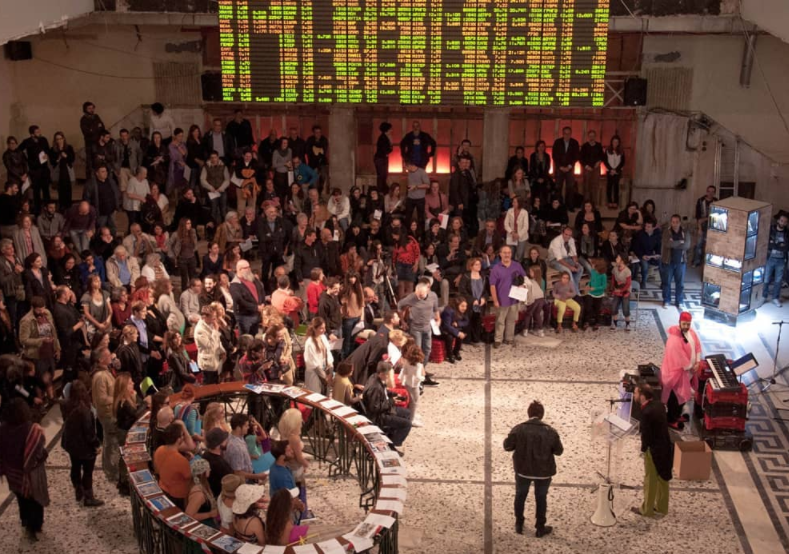
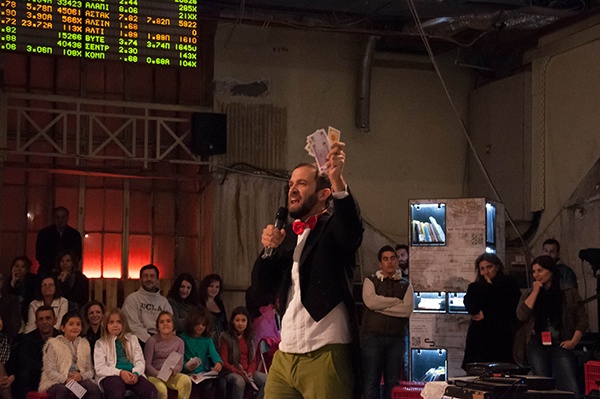
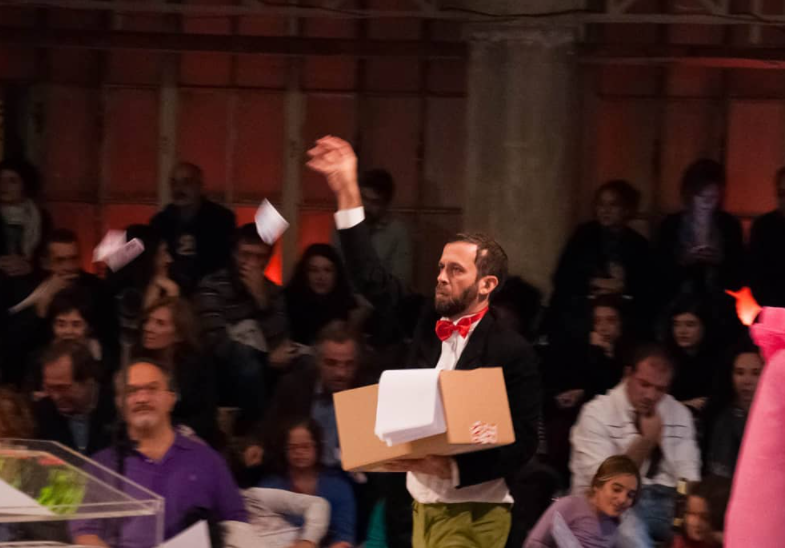
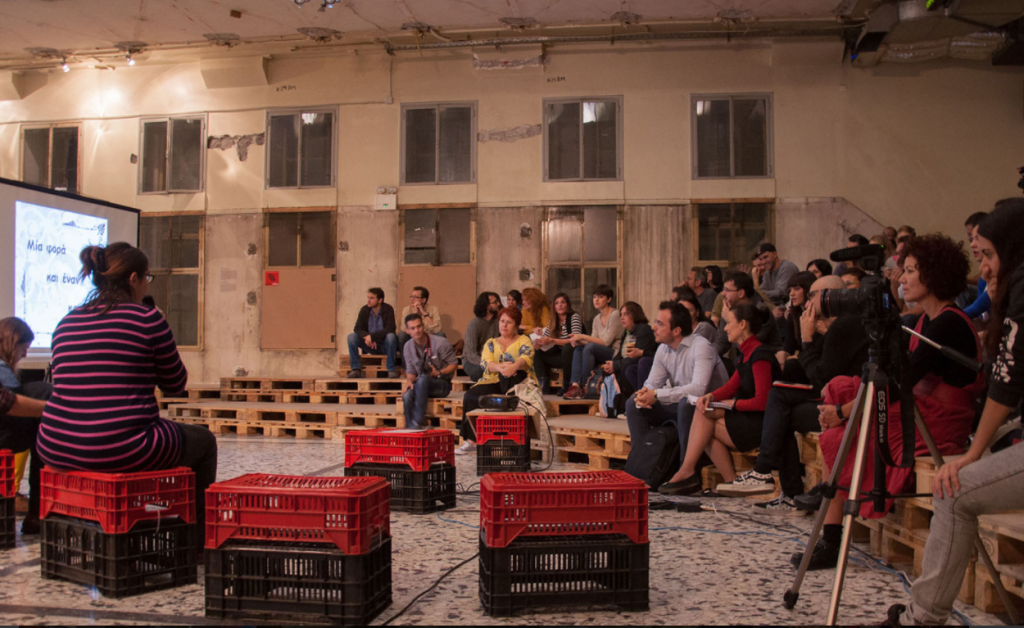
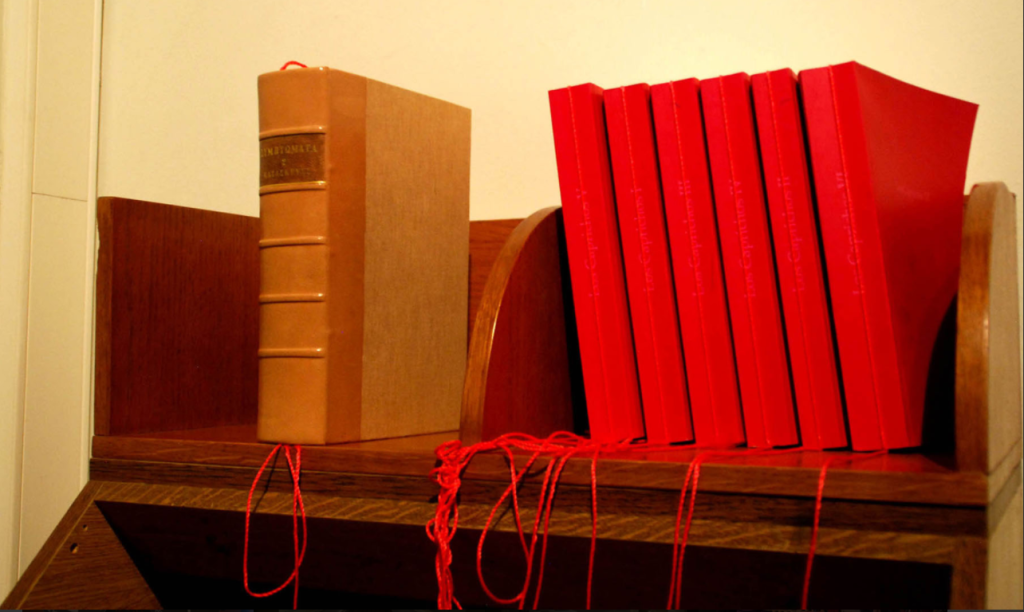
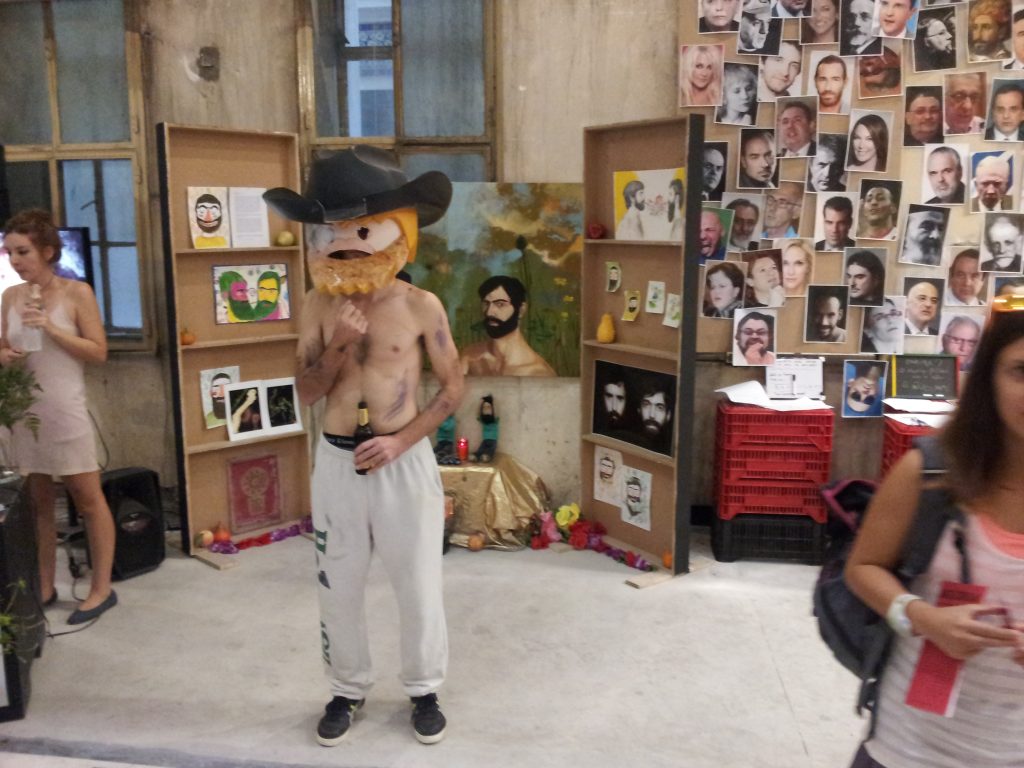
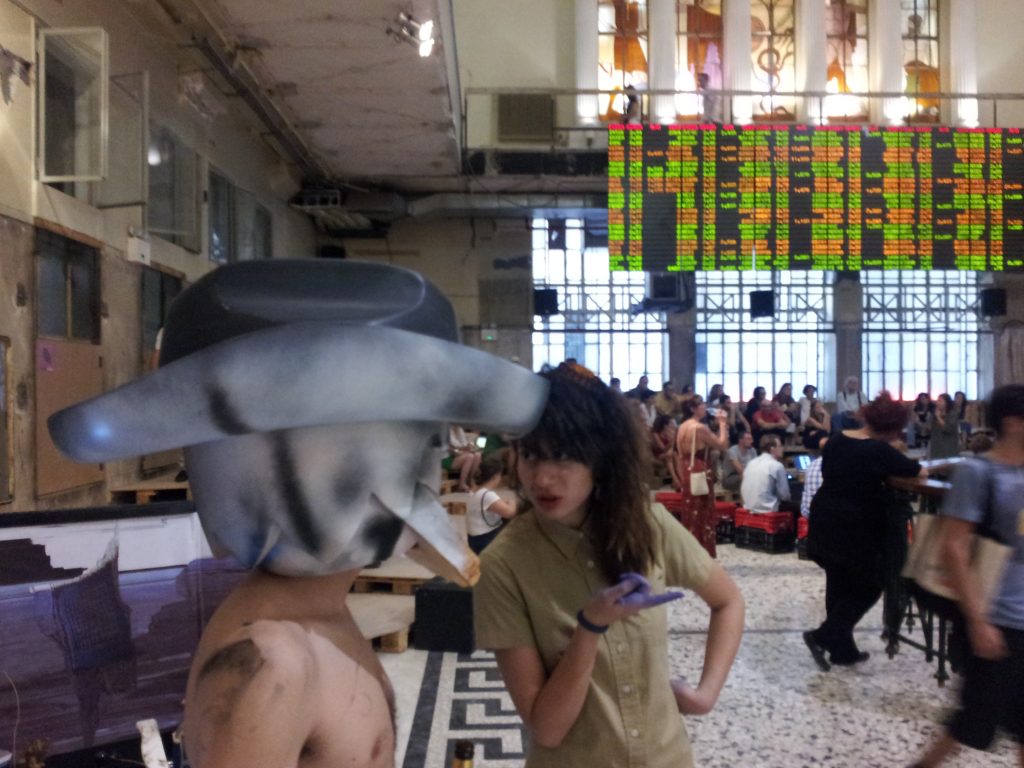
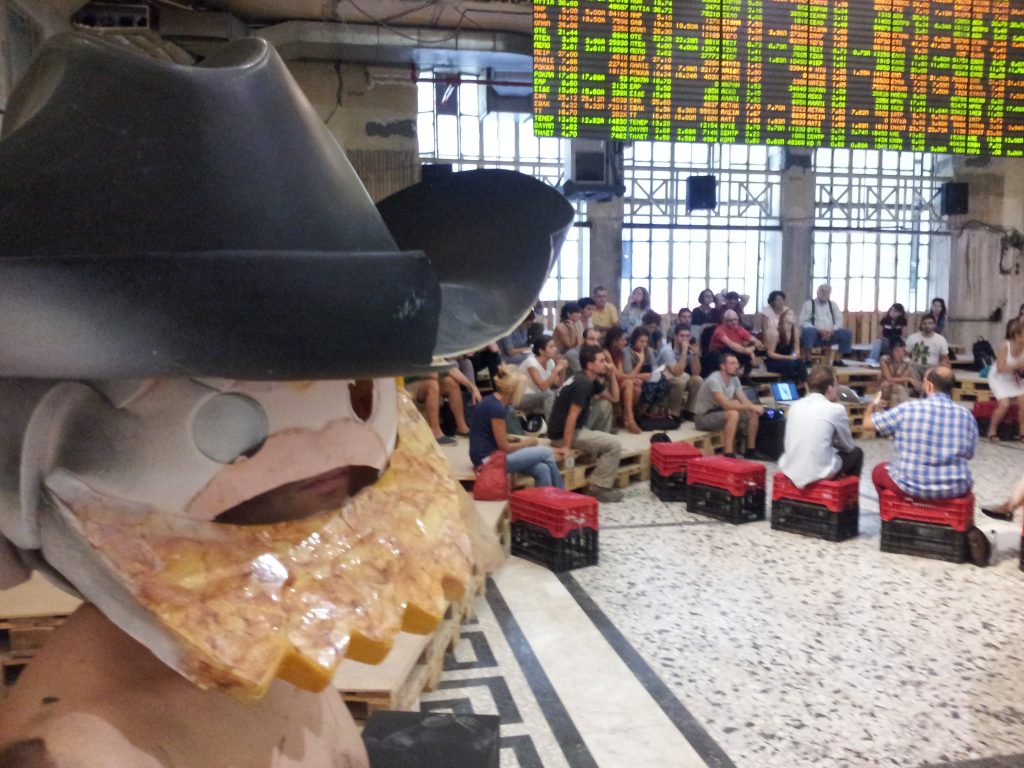
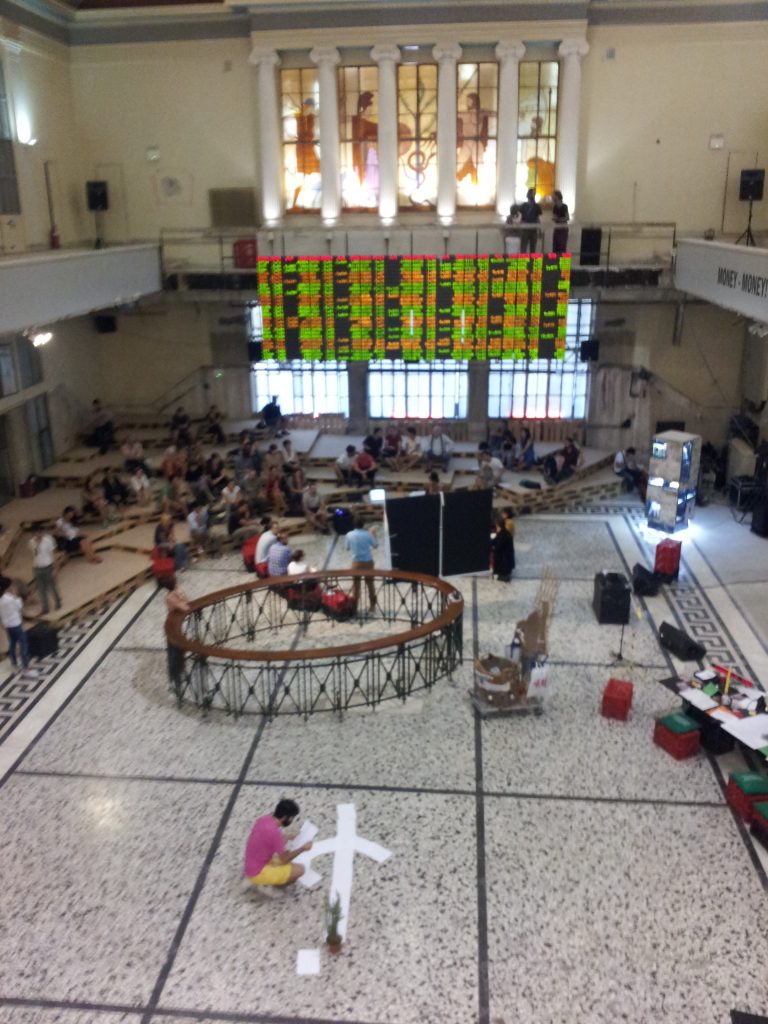
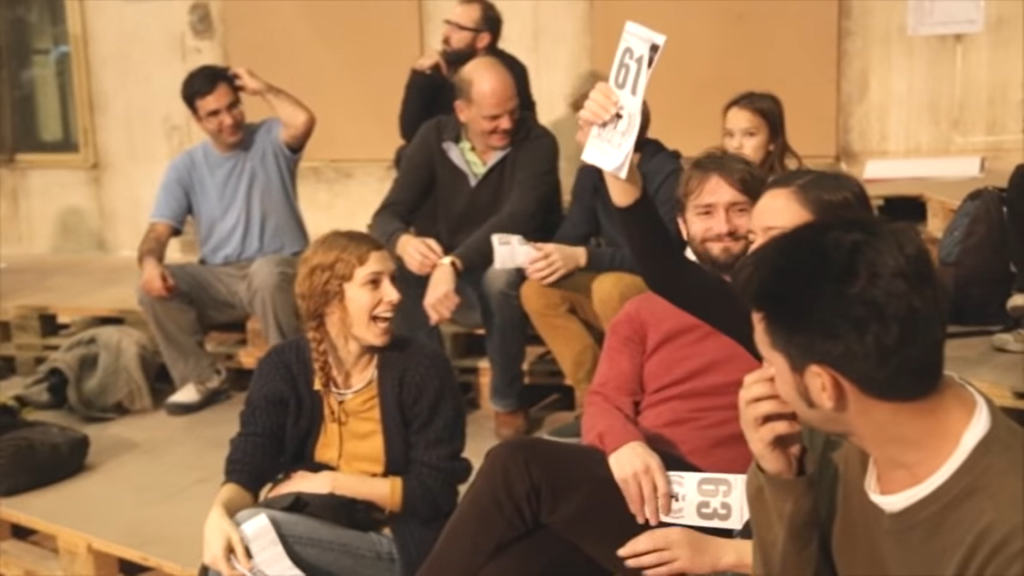
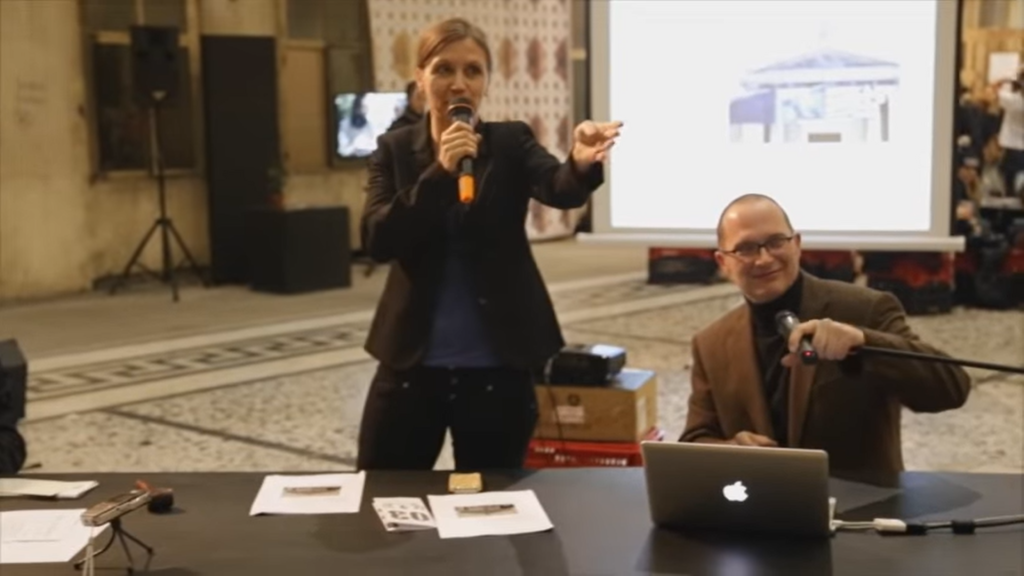
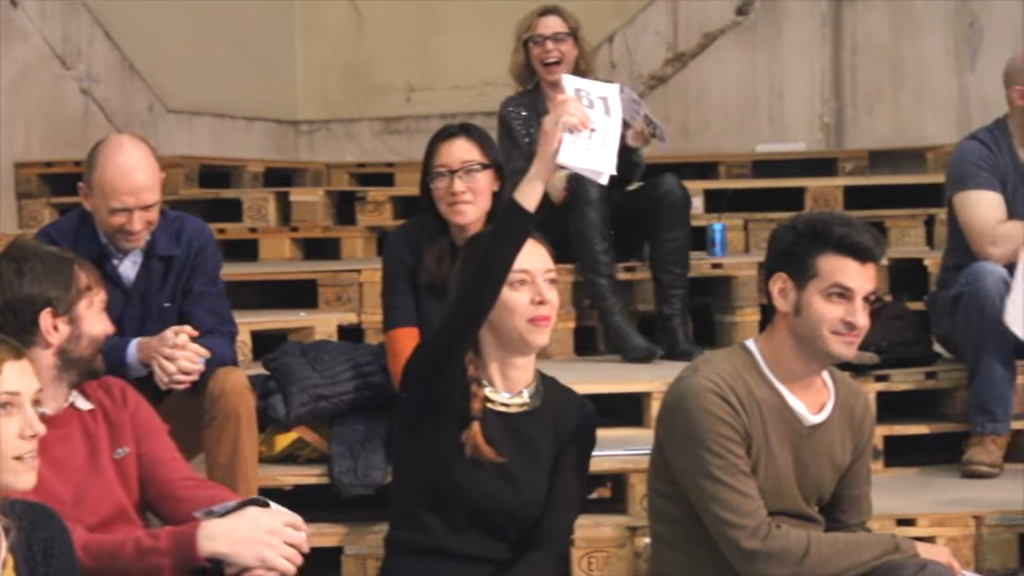
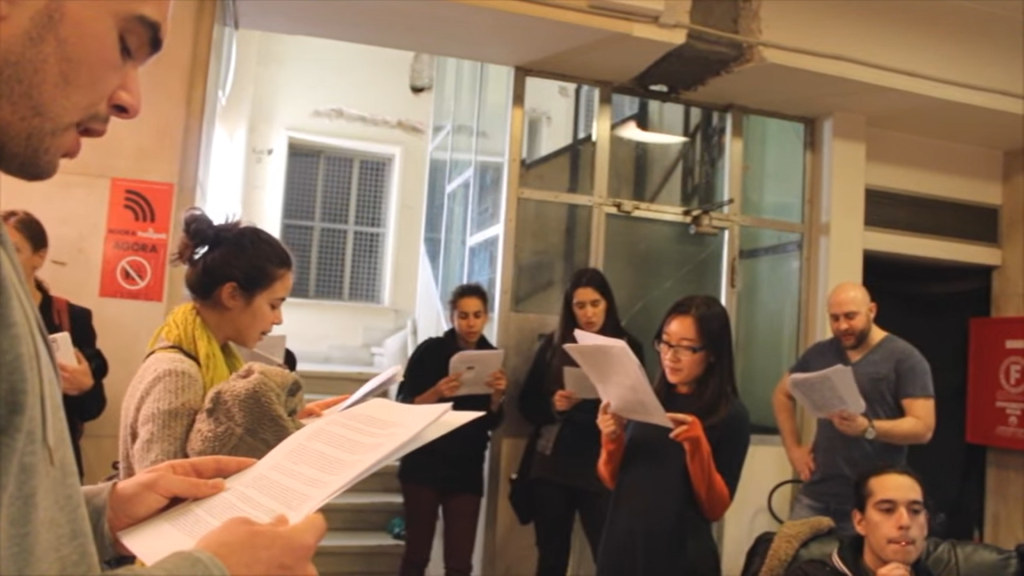
Scenes from AuktionsKomitteeWedding / Auction Comittee with Lisa Glauer (Bauhaus Universität Weimar), Robert Huber (EGFK – Europäische Gesellschaft für Forschung und Kunst), Pablo Hermann (OKK-Berlin), Juan Pablo Díaz (OKK-Berlin). Watch the auction here.